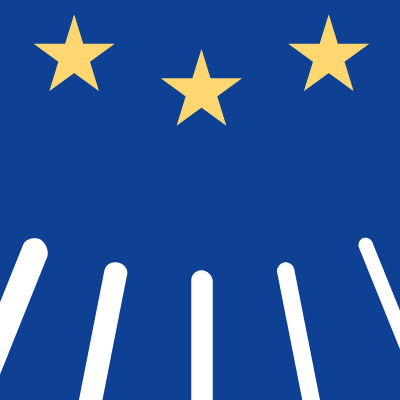

Foto: vog.photo
Award criteria
The European Union Prize for Citizen Science honors citizen science initiatives undertaken within the European Research Area that demonstrate excellence across a range of criteria.
The quality of all submitted initiatives will be judged according to the following six award criteria and sub-criteria:
- Scientific Quality – 5 Points
- Contribution to knowledge
- New research fields and transdisciplinarity
- Open Science & FAIR data best practice
- Quality and robustness of research methodology
- Scientific impact and quality/uptake of research outputs
- Societal Transformation & Policy Impact – 5 points
- Social innovation
- Social & Societal impact
- Environmental impact & sustainability
- Contribution to and engagement with Sustainable Development Goals and Green Deal
- Contribution to and engagement with local, national and European policy development
- Diversity & Collaboration – 5 points
- Diversity of partnerships and stakeholders
- Community engagement
- Quality and extent of citizen scientist involvement
- Co-creation approaches and bottom-up design
- Transdisciplinary involvement
- Integration of citizen scientists into scientific process
- Sustainable collaboration
- Gender diversity & social inclusion
- Communication & Dissemination – 5 points
- Quality and clarity of communication to public
- Quality of community outreach activities
- STEAM & science educational aspects
- Quality and clarity of documentation of outputs for the wider public
- Accessibility and reach to diverse citizens
- Target group awareness
- Innovation & Creativity – 5 points
- Development and/or innovative use of technology for communities
- Innovative methods of artistic & scientific engagement
- Innovation in scientific, artistic, and participatory research methodologies
- Inspirational use of art, culture, and creativity
- Scalability and exploitability of (scientific) results and developed approaches
- European Dimension – 5 points
- Engagement with European policy (EU research and innovation missions, e.g. Open Science policy, Green Deal, New European Bauhaus, and other priorities)
- Showcase Europe’s role as a global leader in Citizen Science
- Exemplify Citizen Science as a methodology and practice in science, education, innovation, and policy within the European Research Area
- Value creation and alignment with the needs of EU citizens
- Incentive for behavioral changes towards science/environmental issues in EU citizens
- Potential to increase trust of citizens in science and research
The points are awarded by overall fulfillment of each criterion, with the sub-criteria being considered according to relevance (e.g. a project that does by its nature not produce digital research data cannot fulfill the sub-criterion of FAIR data best practice, but can still be awarded full 5 points for the criterion 1. Scientific Quality if all other sub-criteria are met).
These criteria will subsequently be interpreted by the jury on the basis of their expertise according to the nature of the submissions received and might be complemented with aspects the jury sees fit for the final selection.
The award criteria are responsive from year to year and may be adapted according to lessons learned from submissions received as well as jury and expert feedback from year to year.
Eligibility criteria
- The competition is open to Citizen Science Initiatives in the European Research Area. This includes the European Union and third countries in Europe that are associated to Horizon Europe or negotiating an association agreement with Horizon Europe. A list of all eligible countries is available on the IMPETUS website.
- The competition is open to applications from natural persons (such as individual researchers, creatives, artists, and other individuals), groups of natural persons, legal entities (such as associations, research and higher education institutions, public bodies, NGOs, companies, and other legally established organizations), and groups of legal entities (such as research consortia).
- Community initiatives may be submitted only by an authorized representative. This may be an individual or an organization as specified above.
- Initiatives must be at the time of submission either be ongoing, completed or far enough along in their design for the jury to be able to assess their quality and impact and the likelihood of being successfully implemented. The same applies to collaborative arrangements – at the time they are submitted, they must already be up-and-running and in the implementation stage. No consideration will be given to entries that are purely concepts, ideas or proposals for collaboration. Entries must be no older than two years or, if completed more than two years ago, must still show a significant update or further development through active work within the last two years.
- Initiatives that have received funding from Horizon Europe or other European Union funding schemes are eligible to receive the European Union Prize for Citizen Science, but European funding is not a requirement for entry.
- Initiatives participating in the IMPETUS Accelerator Program are eligible to receive the European Union Prize for Citizen Science if they fulfill the eligibility criteria (especially 4., see above).
- Citizen Science Initiatives consisting of or benefitting entities subject to EU sanctions are not eligible to apply.*
* This includes entities subject to EU restrictive measures under Article 29 of the Treaty on the European Union (TEU) and Article 215 of the Treaty on the Functioning of the EU (TFEU) and entities covered by Commission Guidelines No 2013/C 205/059
Admissibility criteria
- To participate in the competition for the European Union Prize for Citizen Science, applicants must register online and submit all mandatory information online. A submission is complete and formally entered in the competition only if all information has been entered online and the submission has been finalized online before the official deadline. An entry confirmation will be sent out via e-mail as soon as all required documentation has been received.
- Submissions must be submitted in English. Submissions in other languages will not be evaluated.
- Applications received after the deadline of March 10, 2025 23:59 CET are not admissible.
- There is no fee to enter the European Union Prize for Citizen Science competition.
Required submission materials
Applicants will need to provide the following material through the online submission platform provided by Ars Electronica.
- Initiative metadata (title, start date (year), end date (if applicable), involved parties, links, etc.)
- Video documentation or slideshow (approximately 3-5 minutes in length)
- Images that document the progress and outcomes of the initiative (JPG, TIF, BMP, PNG) at the highest possible resolution; compressed files (such as .zip or .lzh files) are not accepted.
- A clear, detailed description of the concept, the form of interaction and practical implementation; aim or research question of the initiative; including an explanation of how the submission responds to the award criteria
- A profile of the community of citizen scientists and their role in the initiative, including how they have been / are recruited
- A statement on how the prize money will benefit the initiative or the community involved in the initiative in case the initiative wins
- A printable portrait photo and a biography of the creator or creator group
- The applicant has the option to submit additional material such as images, documents and drawings (as PNG or PDF) to support the communication of their initiative. Additional material will only be reviewed during the final jury selection process and will not be reviewed during the pre-selection process or initial review by the jury.
- If your entry is awarded a Prize, your material will be used for the catalog and the IMPETUS and Ars Electronica websites or any communication purpose from the IMPETUS consortium members or the European Union (see Rules and rights), so we ask you to prepare your picture and text material carefully.
- The applicants are asked not to physically submit irreplaceable originals, as the entered material cannot be returned.
The list of questions to be answered by applicants including information on maximum number of characters and other formal requirements for submission materials is available here:


